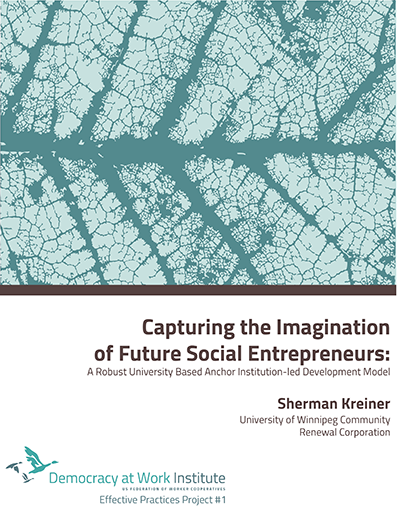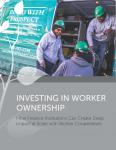Policy Proposal/Discussion Paper
Investing in Worker Ownership
For financial institutions looking to create deep and lasting impact, worker cooperatives are a powerful tool for economic and community development. They reduce inequality by allowing a greater segment of the population to build assets through business ownership. They combat poverty by providing access to employment for marginalized populations. And they strengthen local economies by rooting businesses in their communities.
Policies for a Shareable City: A Sharing Economy Policy Primer for Urban Leaders
Cities are built for sharing. It’s what makes cities engines of prosperity, innovation, and cultural exchange. Well connected cities have the unique capacity to raise per capita production and innovation while using dramatically less energy. For this reason, cities may be our best hope for achieving widespread prosperity within the earth’s natural limits. We believe that fostering the growth of the sharing economy is the single most important thing that city governments can do to boost prosperity and resilience in times of economic crisis and climate change.
Worker Cooperatives for New York City: A Vision for Addressing Income Inequality
The Federation of Protestant Welfare Agencies (FPWA) presents this report, Worker Cooperatives for New York City: A Vision for Addressing Income Inequality, as an examination of one solution for the challenges facing New York’s workers: worker cooperative businesses. Indeed, the report’s key finding is that worker cooperatives can easily fit into a broad campaign to cope with poverty, long-term joblessness, the growing isolation of low-wage workers and unprecedented levels of income inequality.
Capturing the Imagination of Future Social Entrepreneurs: A Robust University Based Anchor Institution-led Development Model
 This is an overview of the University of Winnipeg's anchor-led model for community economic development. It positions the Winnipeg model as a robust example of an anchor institution strategy, and includes a broad survey of US worker cooperative development and movement-building efforts of the last 30 years.
This is an overview of the University of Winnipeg's anchor-led model for community economic development. It positions the Winnipeg model as a robust example of an anchor institution strategy, and includes a broad survey of US worker cooperative development and movement-building efforts of the last 30 years.

